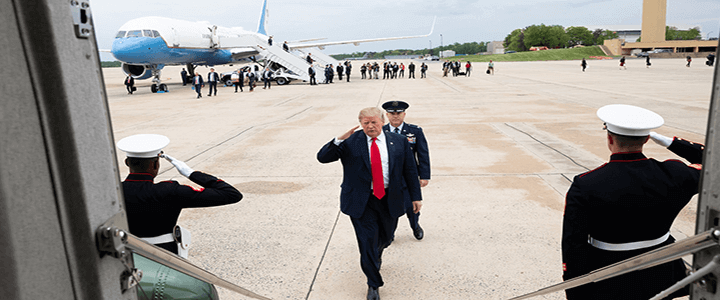As much as I try to stick to the notion that the “deep state” doesn’t exist, sometimes the actions of career bureaucrats make that position hard to defend. The latest instance comes courtesy of “whistleblower” Tricia Newbold, an 18-year employee of the White House Personnel Security Office. Newbold has told a Congress desperate to find something to pin on the president that her superiors, over her strenuous objections, granted security clearances to 25 people whom Newbold believes should not have received them.
Newbold may be concerned with 25, but you can be certain that Rep. Elijah Cummings, chairman of the House Government Oversight Committee, cares about only one: Jared Kushner. Cummings’s has demanded individual security clearance files, something for which the White House pointedly told him he lacks authority. On March 4, Pat Cipollone, counsel to the president, wrote to Cummings, saying, “the Committee has failed to point to any authority establishing a legitimate legislative purpose for the Committee’s unprecedented and extraordinarily intrusive demands.”
One wonders if Newbold is hiding behind a flimsy “whistleblower” status to provide the committee with the files the White House refuses to turn over. I say flimsy, because there is simply no way that there’s any violation of law or regulation, or “gross mismanagement, a gross waste of funds, an abuse of authority, or a substantial and specific danger to public health or safety.”
What does the personnel security office do? It depends on who you ask.
Most government security clearances are processed by the National Background Investigations Bureau. But Newbold’s office, you may recall, is responsible for reviewing the security clearance applications of employees of the White House Office, those who work closest to the president. But as we learned last year during the controversy surrounding former White House aide Rob Porter and charges of domestic abuse, it is not responsible for the final decisions.
In February 2018, while Porter was fighting a losing battle to keep his job, the White House tried to blame the failure to address his legal past on the Personnel Security Office. The press and the president’s foes were having none of it. President Obama’s former White House counsel, Bob Bauer, told NBC News that the office plays “a logistical role” in granting clearances. Another anonymous former White House official said that they do “not make decisions.” Those decisions are the responsibility of senior officials, ones appointed by the president.
But in their rebuttal letter, the committee’s Republicans again characterized the Personnel Security office’s job as adjudicating and making recommendations. It seems everyone is able to look into the office and see whatever they want. And Cummings and the Democrats seem to put a lot of stock in Newbold’s complaints. Did they ask her about Rob Porter?
Out of their hands
The problem for Cummings and his staff is that White House Counsel Cipollone is correct. I have said this over and over, and like a good campaign stump speech, it bears repeating: the president has absolute, unquestioned authority to decide who does and who does not receive a security clearance. That is particularly true of those he wants to be his closest advisers. The system is designed specifically so career bureaucrats—you might even call them swamp creatures—cannot cripple a president’s ability to get advice from the people he personally trusts the most.
Cummings reluctantly admits this. “I understand that the president has the right to grant these security clearances,” he told the New York Times, “but I have the duty and Congress has a duty to be a check on that system.” Except there’s nothing he can do except make sensational headlines. He has no statutory authority to “be a check” on the security clearance system, and he won’t be getting one anytime soon.
Just as Rep. Debbie Wasserman-Schultz can’t revoke Jared Kushner’s clearance, there’s no way for Cummings to undo any of this. What he can do, if he’s willing, is spread a lot of salacious information about what exactly raised Newbold’s concerns. The Constitution’s “Speech or Debate Clause” prevents the chairman from facing any repercussions for things he says in the course of his official duties. That would include revealing details about what Newbold said were troubling foreign influences.
For her part, Newbold agrees that the president is unilaterally empowered, too. “Once we adjudicate it,” she told the committee, “the president absolutely has the right to override and still grant the clearance, but we owe it to the president and the American people to do what is expected of us, and our job is to adjudicate national security adjudications regardless of influence.”
Newbold did her job. Her boss overruled her, and the president granted clearances to people he wanted to work for him. The system worked. That ought to be the end of the story. Dislike of the president and his team, and seeing Jared Kushner as the weak point in the president’s defenses, is insufficient to justify the extraordinary demands the oversight committee is making on the White House.
But a legal showdown may be coming.




